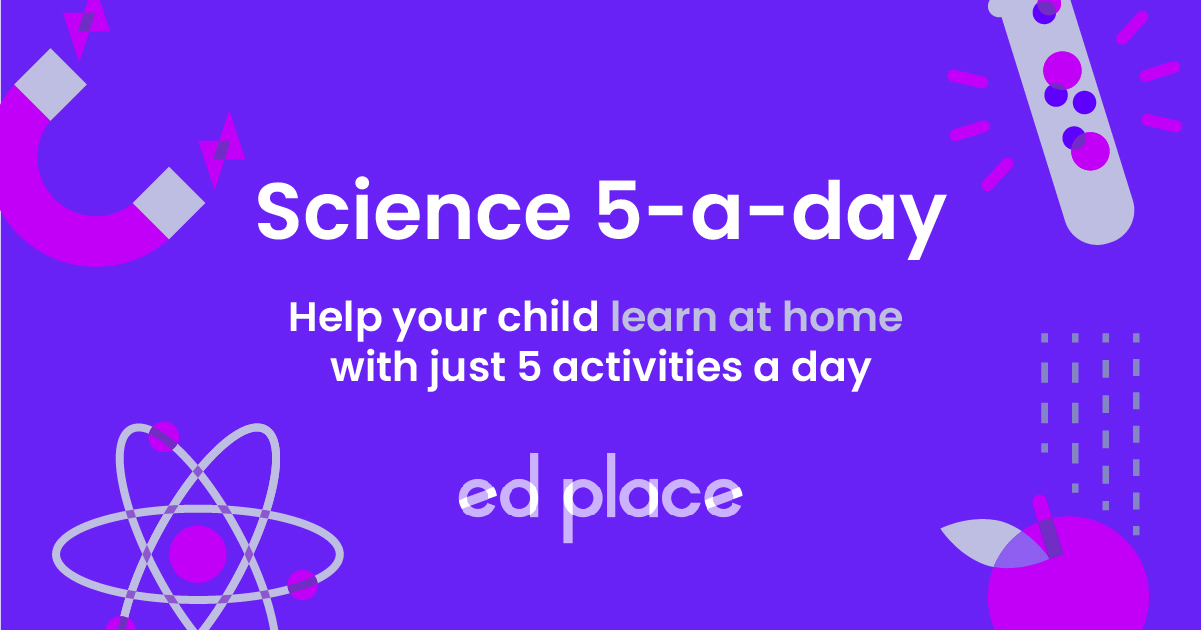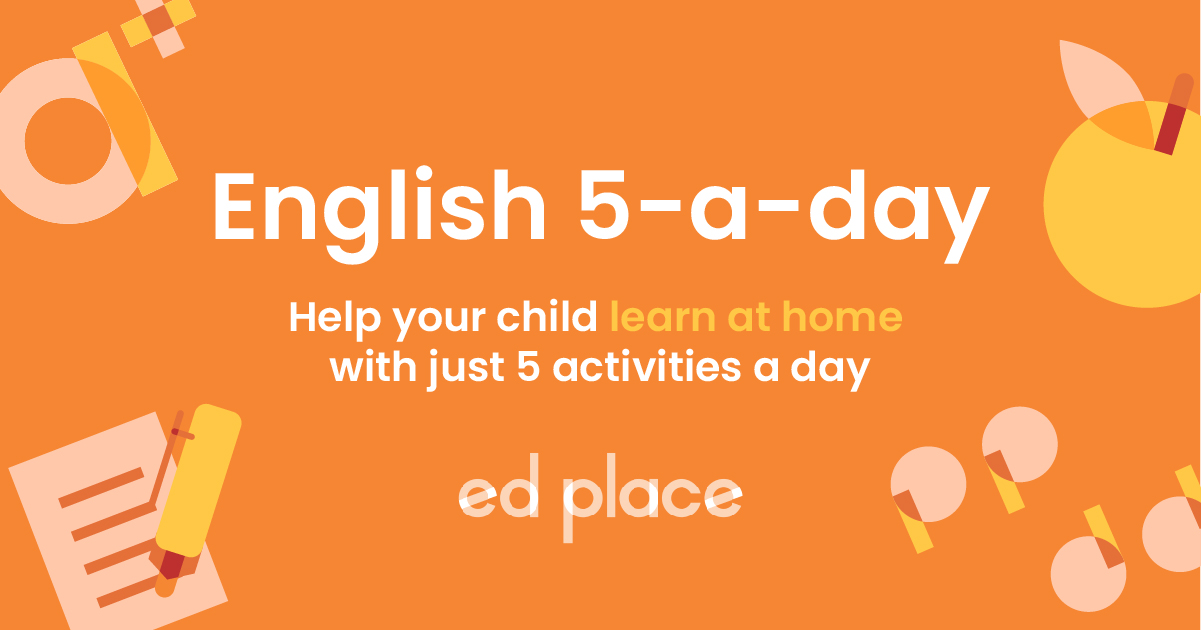The Pros and Cons of Homeschooling
The crew here at EdPlace know that making the decision to homeschool your child isn’t always an easy one. Pulling your child out of school, or not enrolling them in the first place, might seem like a no brainer at times, but there are a multitude of things to consider before you take the plunge.
You need to see all of the pros and cons in order to make an informed decision about whether or not you want to dive right in or run away screaming from the idea of homeschooling your child. As always, you ask, and your helpful heroes shall provide.
In no particular order and without stalling any longer, let’s check out the amazing, the awesome and the best reasons for choosing home education from teacher Ms Amy.
P.S. If you're on the hunt for resources to support your child's homeschooling journey, checkout EdPlace's English, maths and science activities - we're fully comprehensive and cover KS1 all the way up to GCSE!. Now...let's get into it!
Pros!
Control over lesson content
Sure, the National Curriculum is there, as a wonderful guide on what your child should be learning to keep abreast of their school-based peers. But, and it’s an exciting ‘but’, you don’t have to follow it at all!
You can choose to use it as a baseline, or a guide for your road map of education, but the side roads and scenery stops you chose to take on the way are your decision alone.
UK state schools are bound and shackled to the National Curriculum. That means, that even if your child has a burning interest in medieval knights and castles, for example, the chances are they will have little more than the opportunity to touch upon their passion in a few humanities lessons in one term, in one-year group.
At home, however, you can inspire their writing, research and even their maths and science skills all through the topic of knights and castles. You could explore materials to discover the best medium for building castles and weaponry. You could plan a castle siege using angles and trajectories. You could write an entire guide book for their favourite castle, or craft a story set within the ancient walls.
As well as choosing what you do teach, there is the added extra of choosing what you don’t teach your child. For example, some parents chose to remove their child from school, either permanently or temporarily, due to objections to topics such as sex education, which are compulsory in UK state secondary schools.
Reducing the risk of bullying and peer pressure
One of the reasons quite commonly cited amongst parents as to why they chose to homeschool in the UK is that their child was having difficulties with the social side of the school environment.
The issues might be something as serious as being bullied, it might be difficultly forming friendship groups with their current cohort or it might that they simply feel like they don’t and can’t fit in with the school environment for whatever reason.
Whatever the issue your child might be struggling with, the result is often an unhappy child who’s rapidly losing confidence and who can hardly learn for all the other negative thoughts and feelings whirling around their heads. With homeschooling, there’s none of that. Sure, there might be the odd sibling spat if you’re educating multiple children, but those are usually healthy and not at all damaging to a child’s overall sense of wellbeing.
Most home education communities and groups are full of extremely welcoming, positive and non-judgemental people who know what it’s like to be thought of as a little bit different, simply by virtue of their choices. By these standards it seems, home educating a child is an opportunity to reduce the risk of some downright unpleasant social experiences, while giving them the best of all the rest.
One-to-one teaching
Classes; one of the few occasions where size really does matter!
There is no denying that tutoring 1 on 1 offers huge advantages. With just one child to teach (or even a few more) it doesn’t take a mathematician to work out that each child will get far more direct attention than they would in a class of thirty or more of their peers. As a homeschooler your child will enjoy being able to move through lessons at their own pace, be that faster or slower, and not feeling like they’re floundering in the deep end if the school teacher is moving too fast, or doodling their education away in boredom if the lessons are paced too slow for them.
1 on 1, or somewhere thereabouts, enables you to give precise and genuine feedback to your child, giving them clear guidance on how they can improve their work. It enables you to tailor the lesson content precisely to their needs, interests and abilities, meaning that, arguably, your child needs to spend less time in the classroom than they would in a school environment. In short, you’re picking quality time over quantity time!

Tight-knit community
We touched very briefly upon this a little earlier, but it’s worth mentioning it again. Despite the commonly held myth that home-educated children are lacking in opportunities for social development, there is a whole ready-made community out there which you will instantly become part of when you make the decision to home school.
You might be surprised how many groups and clubs are available for home educators in your local area. It’s a great opportunity for you as a parent to make new friends, share resources, plans and expertise, join in group teaching and activities and go on trips and outings en masse.
These communities are also a wonderful chance for your child to forge life-long friendships, to learn from and engage in learning activities with their peers and also to develop those social skills that some think are so elusive. It’s not uncommon for some homeschooling parents to be joining up with other families every day of the week!
And if getting out and about every day isn’t your thing, then the internet is also home to countless communities, groups and blogs all geared at sharing ideas and solidarity amongst homeschooling parents across the UK and indeed around the world.
More time with your child
Do you remember the day you first waved your little one off through the classroom door? What did you think or feel? Some parents might experience that air punching, heel-clicking, sense of freedom and be running back to the car blazing a trail of dust before the door has even swung shut behind them. And yet, many others are heartbroken. Starting school signals the next step in independence, the time your child will be officially spending more hours away from you than alongside you. Your knowledge of their day may be reduced to “fine” and other monosyllabic answers from the backseat on the way home.
With homeschooling that sense of loss is instantly banished. You not only get to enjoy the best of your child all day, every day (except for the odd mini-break of course, everyone needs some ‘me’ time, even Super Mum and Super Dad!), but you also get the joy of knowing exactly what they’ve done, who’ve they’ve spoken to.
Far from being the eyes of Big Brother, for many parents, the joy isn’t in curbing their child’s independence from them, but being able to step back and watch that independence flourish in their own good time and sweet natures.
Flexibility
Hands up, who loves Monday mornings? We bet many of the hands in the air belong to homeschooling parents, and likely not the ones who are wrestling their sleep-drunk offspring into creased uniforms and trying to bundle them out of the door before 8 am. Who needs that shrilling, sleep-shattering alarm going off at 6 am every day anyway?
If you or your child just aren’t cut out to be a bounce-out-of-bed morning person, then one of the many joys of homeschooling means you don’t have to be. You can dispense with those painful start to the days and you could begin your lessons at 10 am, 11 am or heck, even after lunch.
You can make the most of the quiet days at museums, historical sites and, indeed, everywhere and anywhere. Extortionate travel costs during the school holidays? I don’t think so! Holiday when and how you like without feeling like you’re being fleeced for the privilege of preserving your child’s education! Win!
Learning as you go
This one could be a pro and a con, of course, although we’re betting that if you’re a happy home educator, or even considering it, then you probably love to learn. One of the advantages of taking on responsibility for your child’s education is that you get to experience the thrill of learning alongside them.
Unless you’ve taught for years across every year group, the chances are you’re not a fountain of all knowledge (no offence meant, we’re all in the same boat!). So when you embark on that unit on algebra, that lesson about changing states of matter, or the correct way to use colons and semi colons, then the chances are you’ll need to brush up on your knowledge either before your lesson, or as you go.
The feeling of those synapses firing up and new neural pathways being forged is exciting, and oftentimes can be something we lose a little the older and more set in our ways we get. So jumping into life as a home educator might just mean embracing the expansion of your own knowledge and reigniting your love of learning to share with your child!

Play to your child’s strengths
“Everyone is a genius. But if you judge a fish by its ability to climb a tree, it will live its whole life believing that it is stupid,” someone clever, often thought to be Albert Einstein, once wisely said.
As a home educator, you have complete liberty to take your little fish down from the tree and to set it free to excel in the educational river! If your child learns best when they’re outside, awesome, don’t forget to invest in an umbrella and get out there to enjoy! If your GCSE student finds it easier to study in the bookish atmosphere of the local library, guess what? They can study where they like!
In short, you have complete and utter freedom to celebrate everything that is unique and best about your child and not have to watch them struggle and diminish in a classroom environment within which they might always feel like a fish up a tree.
Are you a seasoned home educator? Do you have any other pros or cons you think we should add to our list? Get in touch via our Facebook page and let us know!
Cons!
Here at EdPlace we believe in helping you to make honest and informed decisions and as such we’ve collated the facts, the good and the bad. A number of these cons are also featured as benefits in the list of pros we’ve covered. As The Grinch once said, “one man’s toxic sludge is another man’s potpourri!”.
Time
There’s no two ways around this, providing your child with a full-time education is pretty much a full-time job. You can say goodbye to child-free time during the week and, if you’re following a traditional ‘school-style’ approach, there will also be lesson planning, marking and resource-finding involved.
As a home educator in the UK, you’re not constrained to having to follow a set weekly pattern or even standard school hours, but you do need to provide a “full time” education. You might have to be prepared to sacrifice some of your own free time in order to ensure your child is getting the best education you can provide.
Money
Money can be an issue in two ways. The first is that, if you’re planning to home school full time, the chances are it will be nearly impossible to hold down a job at the same time, at the very least while your child is younger and needs more input from you. Deciding whether your family can afford to not have a full or part-time income from one of the parents is a tough decision to make and can oftentimes be the deciding factor on parents choosing to enrol their child into school despite preferring other options.
Secondly, your outgoings may also increase. There is currently no financial support available to home educating parents (although recent government proposals have floated the idea of introducing some monetary support). If your child is not registered in school you will become responsible for providing all the resources you need as well as paying for examination entry when the time comes. The costs of exams vary, so you will need to do your research and ensure that you’ve budgeted for these at the appropriate time.
Disciplinarian: teacher vs. parent
Anybody who’s been a teacher, or had a child attend school for whatever amount of time, will know that children are often very different creatures at school compared to at home. They might be better behaved for their class teacher than their parents, or it might happily (for Mum and Dad at least!) be the other way around.
Either way, when you decide to home school your child you are responsible for ensuring they are able to concentrate and get on with the work that you choose to set them. It might take a little while to get into a routine if your child is used to only working at school and enjoying free time at home. So prepare yourself for an adjustment period, and for some extra tips of how to set positive boundaries as a parent-teacher.
Judgement from outside
It’s perhaps a sad fact of life, but often making choices that are considered to be ‘outside of the norm’ can lead to a certain amount of judgement from others. While home education is definitely on the rise, and at quite a pace come to that, it is still considered to be an alternative choice and most parents don’t hesitate to enrol their children into school.
As a result, it’s not uncommon for home educating parents to face a lot of questions and perhaps the odd raised eyebrow from family, friends and sometimes even complete strangers! This is likely to be worse in the early stages of your homeschooling life and before you’ve even made the leap.
To help you through this uncomfortable stage arm yourself with your reasons for home educating, but don’t ever feel like you have to explain your actions. We’d also recommend finding yourself a tribe of people who will understand where you’re coming from. You can find out more about home education groups and communities here.
Stress
Stress is a possible concern when you start to home educate your child full time and is something you should consider how you’d manage. Home educating means that, not only is the burden of parenting on your shoulders, but so too is that of the teacher; it’s a lot of responsibility and both roles can be tough in their own right.
Cool cucumbers might welcome the challenge, but others might need to make sure they’ve got some strategies in place and a good sounding board (in the form of like-minded friends or family perhaps) to lean back on when the times get tough.
It’s important to keep a calm demeanour as you teach so self-care is the order of the day, a happy parent will be a better teacher, so make sure you put on your own safety mask first!
Being an expert in all things
The fact that you’ll need to learn as you go is definitely something we consider to be a big positive; however, it can also be quite intense at times, especially as your child rises up the educational ladder. By the time your child is aiming for their GCSEs there is a lot of specific content to cover for as many subjects as your child is taking.
Likewise, teaching younger children is deceptively challenging. We might think that telling the time is simply second nature, but when it comes to breaking it down into its individual concepts and explaining those concepts in understandable and easy to follow language, the task suddenly doesn’t seem so small! The average classroom teacher may have had years to practice and develop their skills and subject knowledge, for many parents, each lesson is the first (and possibly the last) time they will encounter a topic.
Make the most of the opportunity to discover something you maybe didn’t know before and make the most of educational days at local museums and sites of interest to support your teaching. You could also draw support from your home education tribe. Bamboozled by Biology? There’s bound to be someone within your online or offline community who can help you out!
PPA: Planning, preparation and assessment
If you decide to follow the more traditional schooling route, then you’ll find yourself perhaps wanting to keep records of lesson plans, timetables, schemes of work and marking. If you know any school-based teachers you’ll know just how much extracurricular work there is to be done, we don’t know a single teacher who’s ever followed the children out of the gate at 3pm!
Maximise your time by working through your planning and marking while your child is working independently on a problem or task. Alternatively, you could break your time down into little chunks at the end of each teaching day and avoid having a build up and a heavy workload once a week!
Increasing government intervention?
Unfortunately, the question mark at the end of this subheading wasn’t a typo. We genuinely have little idea quite what the world of home education will look like by this time next year. There are proposals currently under consultation to introduce a compulsory register for home-educated children and the possibility of more local authority checks and intervention. Likewise, however, there are also talks of introducing funding opportunities to support parents who teach at home. You can check out our recap on the latest changes here.
In short, times look like they’re changing and while the new guidelines are clear, the impact of those guidelines is likely to vary from one local authority to another and may be subject to further changes.
Are you a seasoned home educator? Are there any challenges or negatives that you’ve experienced on your home education journey? Get in touch via our website or Facebook page and let us know!
As always EdPlace is here to help! We provide English, maths and science resources for homeschooled students from KS1-GCSE, all available online and at your fingertips!









